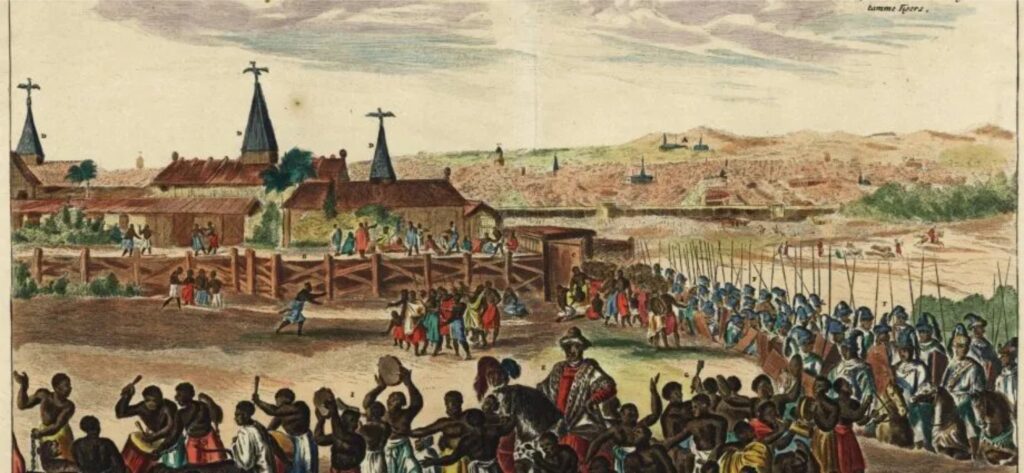Every year, two days after Eid-el-Kabir, the city of Ijebu Ode becomes a living stage for Yoruba tradition. The Ojude Oba Festival is a grand celebration where culture, history, and loyalty converge in spectacular form. At the heart of it all is the Awujale of Ijebuland, seated in regal presence as chiefs, dignitaries, and townspeople arrive to pay homage. From royal greetings to symbolic gestures, the scene at the palace reflects deep-rooted respect and a social structure that has endured for generations.
Beyond the palace gates, the vibrant procession of regberegbe, or age-grade groups, takes over the streets. Clad in coordinated aso-ebi, adorned with coral beads, embroidery, and dazzling fabrics, each group rides in on horseback, singing, dancing, and celebrating their heritage. It’s more than a parade; it’s a proud display of unity, legacy, and community identity. What began as a Muslim celebration has grown into a cultural powerhouse that embraces all Ijebu people, regardless of religious background, proving that tradition can be both inclusive and powerful.
Ojude Oba is also a stage for fashion, storytelling, and prestige. Tailored garments are chosen not just for beauty but to reflect family ties, status, and personal expression. Underneath the glamour is a heartbeat of shared memory. From the chants that echo ancestral praise to the intergenerational ties woven through regberegbe participation, the festival affirms one truth: Yoruba culture is alive, evolving, and fiercely proud of its roots.


